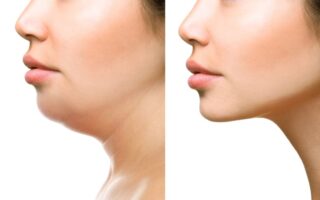Although it can be frightening, experiencing a pulsating sensation in your brain without any accompanying pain is usually nothing to worry about. Muscle contractions or variations in blood flow are frequently to blame for this phenomenon. Your blood vessels naturally dilate and constrict, and occasionally you can sense this rhythmic throbbing. Caffeine consumption, stress, or exhaustion might also contribute. Despite being generally safe, you should always seek medical advice if you have any worries or strange symptoms. Experiencing a pulsating sensation in my head without pain left me curious but not overly concerned.
Causes of Pulsating Sensation in the Head
There are many causes for the pulsing sensation in the brain that is painless. Changes in blood flow brought on by the normal expansion and contraction of blood vessels are one prevalent cause. This feeling can be made worse by stress, anxiety, or physical activity. Dehydration and caffeine consumption could also contribute. The pulsing sensation can also be caused by muscular spasms in the head and neck regions.
Major Causes of Pulsating Sensation in My Head
There are a variety of causes for experiencing a pulsating sensation in the head without any accompanying discomfort. The natural ebb and flow of blood via the blood vessels in your head is a common cause of this rhythmic sensation. This feeling can become more intense under stress, anxiety, and weariness. The pulsing sensation may also be caused by dehydration, coffee use, or even muscular contractions in the neck and head area.
Palpitations
The awareness of your heartbeat, known as palpitations, is frequently accompanied by a fast, erratic, or pounding sensation in your chest. They may be caused by a number of things, such as stress, worry, coffee use, or vigorous exercise. Palpitations can occasionally also be brought on by medical illnesses such as arrhythmias, thyroid issues, or heart ailments. While the odd palpitation is usually nothing to worry about, more frequent or severe bouts can require medical attention.
Pulsatile Tinnitus
A strange perception of a heartbeat-synchronized rhythmic noise in the ears is known as pulsatile tinnitus. This disease is related to the blood flow in surrounding blood vessels, unlike ordinary tinnitus, which frequently manifests as a persistent ringing or buzzing. Blood artery anomalies, elevated blood pressure, or even turbulent blood flow are just a few of the causes.
Tension Headaches
A frequent type of headache known as a tension headache is characterized by a dull, aching sensation that usually surrounds the head. They frequently develop from stress and muscle strain, which tighten the muscles in the head and neck. Poor posture, worry, or even spending too much time staring at a screen can cause these headaches. Although tension headaches are typically not severe, they can nonetheless be very painful. Stress management, relaxation exercises, and over-the-counter painkillers are frequently helpful in controlling and preventing them.
Migraine Attacks
Migraine attacks are severe headaches that can be extremely painful and incapacitating. They often affect one side of the head. These episodes are often accompanied by additional symptoms, including nausea, vomiting, and sensitivity to light and sound, and can linger for hours or even days at a time. Numerous variables, such as hormone fluctuations, particular diets, stress, or environmental conditions, can cause migraines. In order to treat migraines and stop them from starting, a person may take medication to reduce their symptoms.
Temporal Arteritis
The disorder known as giant cell arteritis or temporal arteritis causes inflammation of the arteries of the head and neck, particularly the temporal arteries. If left untreated, this ailment, which typically affects older people, can result in severe headaches, jaw pain, vision issues, and even blindness. As temporal arteritis is frequently treated with prescription drugs such as corticosteroids to reduce inflammation and avoid consequences, prompt medical intervention is essential.
Dizziness
When you have dizziness and a pulsating sensation in your head, this might be worrying. This constellation of symptoms could be brought on by a number of conditions, including migraines, changes in blood pressure, and inner ear problems. An imbalance in blood flow or inner ear function can cause dizziness.
Inner Ear Inflammation (Labyrinthitis)
The labyrinth of the inner ear, which controls balance and hearing, becomes inflamed when a person has labyrinthitis, also known as inner ear inflammation. It can be brought on by bacterial or viral infections and cause symptoms like vertigo, nausea, and a ringing in the ears (tinnitus). Medical intervention may involve antibiotics for bacterial infections and medicines to treat symptoms, while most cases resolve on their own. Recovery-promoting measures frequently advised include rest, hydration, and balance exercises.
Also Read: Why Does My Ear Hurt When I Burp?
Drug Reactions
Adverse effects or responses that arise when drugs interact with the body are referred to as drug reactions. These reactions can appear as unwanted side effects, allergies, or drug intolerances. While nausea, exhaustion, and dizziness are frequent side effects, severe allergic responses may cause hives, breathing problems, or swelling. When several medications are taken at once, drug interactions can potentially happen and compromise the safety or efficacy of those treatments. In order to guarantee safe and successful treatment, it is imperative that healthcare providers are aware of your medication history and any adverse reactions you may have had.
Pulsating feeling on the left side of the head, no pain
There are a number of causes for having a pulsating sensation on the left side of the head without any accompanying pain. The natural ebb and flow of blood through those blood vessels is sometimes thought to be the cause of this rhythmic sensation. Caffeine use or stress-related conditions may make this sensation worse. The pulsing sensation may also be caused by muscular spasms in the neck and head regions. Stress and anxiety can also contribute to the pulsating sensation in my head, as I highlighted earlier.
Cluster Headaches
Often at the same time of day or night, cluster headaches are extremely painful, recurrent headaches that come in groups or cycles. They are distinguished by severe, stabbing pain, commonly in the area surrounding one eye. These headaches may be accompanied by symptoms like red or watery eyes and nasal congestion, and they can last anywhere from 15 minutes to several hours. Although the precise reason is not entirely understood, drugs are often used to treat them in order to ease pain and lessen the frequency of attacks.
Cervicogenic headaches
Cervical spine problems can cause a specific type of headache called a cervicogenic headache. They frequently originate from neck issues such as nerve compression, muscle tension, and cervical osteoarthritis. Cervicogenic headaches, in contrast to some other types of headaches, often begin in the neck and then radiate up to the head, producing one-sided pain. Chronic headaches like these can occur, and bad posture or neck movements can cause them or make them worse. Physical therapy, medicines, or other therapies suggested by a healthcare expert are frequently used to treat the underlying neck problem.
Pulsating in the Head, No Pain When I Stand Up
When you stand up, you could have a pulsing sensation in your head that isn’t accompanied by any discomfort. This is likely caused by changes in blood flow. Your head’s blood vessels may experience this sensation briefly as they adjust to their new position as you stand. It’s frequently a typical reaction and not a cause for alarm.
Low-pressure headaches
Low-pressure headaches, or spinal headaches, happen when the pressure of the cerebrospinal fluid around the brain and spinal cord decreases. They may follow operations like spinal anesthesia or lumbar punctures. Typically, these headaches are characterized by excruciating head pain that gets worse when standing and better when lying down. Bed rest, water, and occasionally a “blood patch” operation to fix the spinal fluid leak and stop the headache are possible treatments.
Remedies for Pulsating in the Head
Consider the following treatments if your head is pulsing:
1. Drink plenty of water. Dehydration might make the feeling worse.
2. Reduce stress: Deep breathing exercises are effective.
3. Limit caffeine intake: cut back, especially if it makes you feel more pulsing.
4. Maintaining good posture will help you avoid muscle stress.
5. Getting adequate sleep: Make sure you receive enough sleep.
6. If the sensation continues or gets worse, speak with a healthcare professional for an accurate assessment and recommendations.
Conclusion
In conclusion, understanding the reasons behind the pulsating sensation in my head with no pain can help ease any worries. To rule out any underlying conditions and get the right advice, it is advised to visit a healthcare practitioner if it persists or becomes worrisome.



